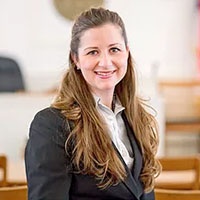Jamesville Estate Lawyer, North Carolina
Stephanie B. Irvine
Estate, Collaborative Law, Divorce & Family Law
Status: In Good Standing Licensed: 36 Years
R. Brantley Peck
Wills & Probate, Divorce & Family Law, Estate Planning, Accident & Injury
Status: In Good Standing Licensed: 41 Years
Keith B. Mason
Real Estate, Wills, Business Organization, Municipal
Status: In Good Standing Licensed: 42 Years
David C. Francisco
Real Estate, Government, Trusts, Corporate
Status: In Good Standing Licensed: 49 Years
Christina Maria Sheppard
Election & Political, Trusts, Workers' Compensation, Family Law
Status: In Good Standing Licensed: 19 Years


